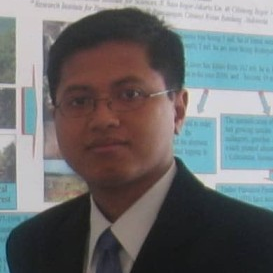Separation Techniques for the Removal of Pollutants in the Environment
A special issue of Separations (ISSN 2297-8739). This special issue belongs to the section "Environmental Separations".
Deadline for manuscript submissions: closed (20 June 2023) | Viewed by 200
Special Issue Editors
Interests: water and wastewater treatment biological; physical-chemical processes bio-membrane; carbon adsorption waste management
Interests: environmental chemistry
Interests: biodegradation; microbial processes
Special Issues, Collections and Topics in MDPI journals
Special Issue Information
Dear Colleagues,
In the past few decades, environmental pollution has escalated due to increased human activities, rapid industrialization and other anthropogenic activities. Among the pollutants of concern due to their toxicities are heavy metals, pesticides, herbicides and hydrocarbons. The existence of contaminants of emerging concern (CECs) such as endocrine-disrupting compounds (EDCs) and various recalcitrant pollutants in the water environment has rendered existing conventional treatment processes less effective in the treatment of these complex and complicated pollutants. This is becoming one of the most severe environmental challenges that researchers are facing.
This Special Issue entitled “Separation Techniques for the Removal of Pollutants in the Environment” aims to collate recent state-of-the-art contributions related to innovative materials and cost-efficient separation techniques for the removal of emerging pollutants from the environment. Topics include, but are not limited to:
New synthetic and characterization methods to produce cheap and environmentally friendly materials; novel adsorbents for the removal of micropollutants from the environment; biofilms and filtration technologies for pollutant removal; advanced oxidation process for pollutant degradation; nanotechnology applications and process control in pollutants removal.
Thus, the submission of papers describing innovative, sustainable, and eco-friendly separation processes is very much encouraged. Contributions related to the use of renewable energy sources and the possibility of the removal and/or transformation of emerging contaminants into reusable end products will also be accepted.
Prof. Dr. Mohd Razman Salim
Dr. Swee Pin Yeap
Dr. Tony Hadibarata
Guest Editors
Manuscript Submission Information
Manuscripts should be submitted online at www.mdpi.com by registering and logging in to this website. Once you are registered, click here to go to the submission form. Manuscripts can be submitted until the deadline. All submissions that pass pre-check are peer-reviewed. Accepted papers will be published continuously in the journal (as soon as accepted) and will be listed together on the special issue website. Research articles, review articles as well as short communications are invited. For planned papers, a title and short abstract (about 100 words) can be sent to the Editorial Office for announcement on this website.
Submitted manuscripts should not have been published previously, nor be under consideration for publication elsewhere (except conference proceedings papers). All manuscripts are thoroughly refereed through a single-blind peer-review process. A guide for authors and other relevant information for submission of manuscripts is available on the Instructions for Authors page. Separations is an international peer-reviewed open access monthly journal published by MDPI.
Please visit the Instructions for Authors page before submitting a manuscript. The Article Processing Charge (APC) for publication in this open access journal is 2600 CHF (Swiss Francs). Submitted papers should be well formatted and use good English. Authors may use MDPI's English editing service prior to publication or during author revisions.
Keywords
- novel adsorbents
- recalcitrant pollutants
- nanotechnology applications
- biofilms and filtration technologies
- advanced oxidation processes
- contaminants of emerging concern
- micropollutants
- heavy metals
- endocrine disrupting compounds
- herbicides and pesticides







